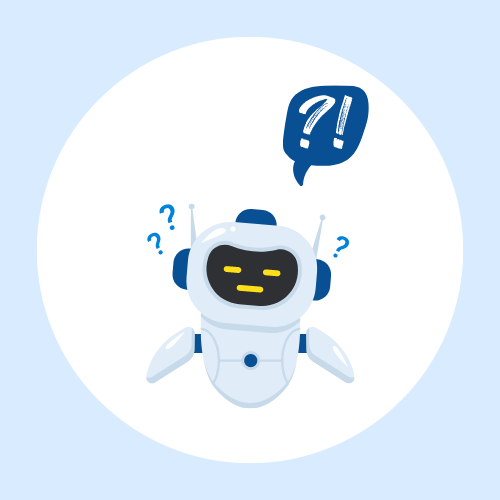What is Artificial Intelligence
Every day, you lose a competitive advantage that your team puts off implementing cutting-edge AI-powered solutions in your content marketing. It would be great if this came off as a little dramatic. However, your marketing team should be on alert and ready to accept AI-powered marketing tools due to this. Artificially intelligence systems are always behind the scenes of well-known goods and services like Netflix, Amazon, and Google. But over the last few years, AI has paved a deeper path into marketing, aiding brands in improving each stage of the customer journey. Additionally, medium- and small-sized businesses can now afford and access tools previously only available to enterprises.
Eight ways to use AI to outperform your marketing competitors are-
1. AI PPC Marketing
AdWords and Facebook receive the majority of the pay-per-click budgets from marketers. In-house teams or PPC agencies typically manage pay-per-click ad campaigns. However, AI can assist you in finding novel advertising avenues that your rivals might not utilise. Artificial Intelligence-powered systems can help advertisers test out more ad platforms and optimize targeting. That’s what Facebook is doing with its ad delivery optimization. However, this approach could also be applied to omnichannel PPC campaign data using third-party or in-house AI tools. With this strategy, AI analyzes, manages, and optimizes paid advertising campaigns with minimal human involvement.
2. Personalize Customer Experience
One essential goal for marketers is providing a personalized customer experience, but it might be challenging to achieve this with little or no data. It is because different customers act in different ways at other times.
That’s how everything is likely to change with AI marketing. When you employ AI marketing, you no longer manually sift through data to understand your customers’ expectations. Instead, you feed the data, and your AI algorithm takes care of the rest.
From the analysis, you can understand and decode the previous interactions of your customers to know how they are likely to behave at the present moment. Interestingly, because of AI recommendations, your customers see customized product suggestions whenever they visit a website or browse the internet.
AI targets each user and provides relevant product suggestions based on browsing history and behavioral data. Interesting statistics: 45% of retailers use or plan to use AI to improve multi-channel customer engagement and make it a part of their marketing mix.
3. AI Driven Content
Natural language generation has great potential to streamline content creators’ tasks. Gartner forecasts that machines will write 20% of all business content by 2018. Computers can produce content using straightforward rule sets and formats like summaries of profits and losses, periodic business reports, descriptions of hotels’ current stock insights, and recaps of sporting events. Each story produced by AI looks like a human wrote it. The formats and guidelines established by your brand to best serve your audience will determine each narrative’s data insights and writing style. In addition, Artificial Intelligence-powered marketing tools can suggest new social media posts that your brand’s followers will likely interact with and create content themselves.
4. Chatbots
If you have recently interacted online with a customer service representative named Ashley or Jen, your friendly correspondent may have been hiding something: She is a robot. Intelligent chatbots offer nearly magical customer service in various industries, including fashion, health, and insurance. And in some instances, they produce personalized content more effectively than people. “There are millions of customer-focused data points available to chatbots.”

They can also combine location-specific requests to find trends, identify recurring issues, and forecast what’s troubling a specific user. As a result, they are frequently more knowledgeable than any human customer service representative. However, chatbots are not just for one-on-one customer service interactions. For instance, the Kik bot for Sephora opens with a brief survey about the user’s preferences in makeup.
5. Email Content
Using Weekly intelligence emails to various customer segments is frequently assembled and scheduled by your team, taking hours to complete. You can only send some customers a personalized email, even with clever subscriber segmentation. On the other hand, according to a 2016 study, 80% of marketers believe personalized content is more successful than general content.
AI then enters the picture to understand all subscriber’s interactions with the content, algorithms can map their website and email browsing histories. With this knowledge, the algorithm can recognize hyper-contextual content and produce individually tailored emails. Dynamic emails can be created based on: website interactions from the past, time spent on a page, and a wish list. Most popular content at the time, as well as previously read blog posts and other content. With similar visitors’ preferences and previous interactions with branded emails, it is now possible to send personalized, expertly curated emails to every customer, thanks to Artificial Intelligence. AI-assisted emails could become even more engaging for every subscriber by analyzing a customer’s reading habits and areas of interest to recommend specific content most relevant to that person.
6. Predicting Churn and Engaging Customers
Additionally, machine learning algorithms can find disengaged customer segments that are about to leave or switch to a competitor. These AI-powered tools can assist with data collection, creating predictive models, and testing and validating those models on actual customers. That information may reveal the person’s current stage of churning. While it is challenging to re-engage quick-churn customers. The users who stop using a product soon after starting to use it. Late-churn customers have a long-term relationship with the brand. Therefore, they can be encouraged to continue using your product.
7. AI Driven Consumer Insight
AI can provide marketing insights instantly, whereas it would take humans a long time to crunch all the numbers and match them to customer behaviour patterns. Customer personas are developed by AI algorithms using billions of data points, including geographic events, local interactions, sources of referral, psychological variables, and purchasing habits from past conversations. Machine learning algorithms can define which customer segments should be incorporated and neglected in campaigns. As a result, they more effectively match customers with the products they will use and keep.
8.Image Recognition Powered by AI
All major brands like Amazon, Facebook, and Pinterest use AI image recognition to recognize individuals and objects in pictures and videos. Image recognition may improve the synchronization between online content and store visits from the marketers’ perspective. Many businesses use facial recognition software to track in-store customer visits and connect these videos to their customers’ profiles. When combined with AI-managed push notifications, stores can send personalized welcome messages, and real-time discount offers to specific visitors.

Customizing the content experience for visitors to your store now has a significant new layer, thanks to data collected from in-store facial recognition. You can create and deliver even more targeted one-on-one messaging by knowing how the person shops. Software for facial recognition can be used as a measurement tool, allowing you to monitor the offline return on your online investments.
Conclusion
Using information about how visitors have interacted with your business, from the website to the shipping department. AI can assist you in displaying the most relevant products or content—automatically recognizing images. You might have noticed how proficient Google Photos has gotten at identifying people and objects if you have recently used the service. The software has newly developed into a superhuman at recognizing people, with an accuracy rate of over 99%. Artificial intelligence has advanced significantly and already influences the future of marketing. You are responsible for integrating this technology into your company. But AI is the future; that much is certain. Using AI-powered marketing tools is essential to operate a successful online business in the upcoming years.
















